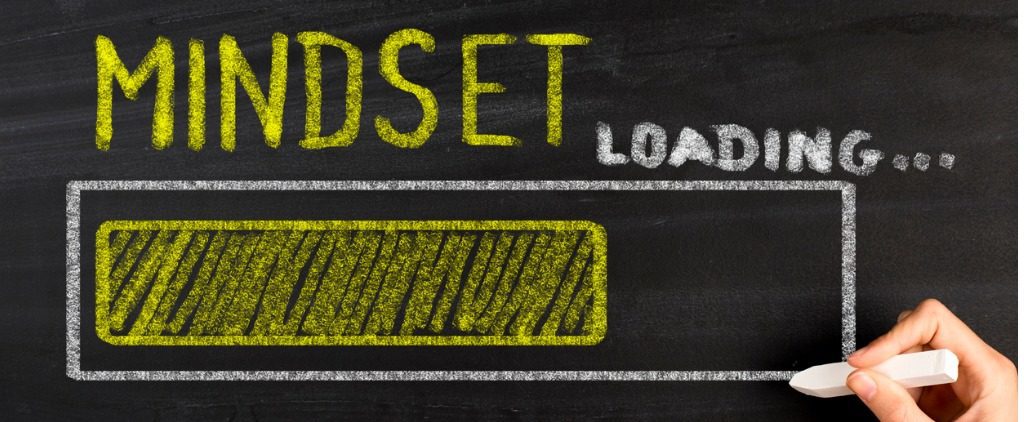I have a friend who fantasizes about telling his boss to go f*ck himself.
No hugs, boxes or exit interviews. In fact, he says, he’d walk out giving his co-workers the finger.
Hey, maybe you’d like to do that someday too.
Individuals who achieve financial independence and retire early could quit their careers with that kind of flair.
The problem is those who dream of quitting their job with gusto are unhappy at work, and can’t wait to quit or retire. And therein lies the paradox inherent in my friend’s dream: You must be happy at work in order to become successful enough to no longer work.
All puns aside, everyone I know in the FIRE (Financial Independence Retire Early) community had a burning desire to achieve financial independence. None of them disliked work. They got along well with their co-workers and supervisors.
They were happy along the way. They’re happy today.
“He who is not contented with what he has, would not be contented with what he would like to have.” ― Socrates
Theories on Happiness
Happiness is complicated. We adjust to new realities. Whatever we’ve just experienced or accomplished soon loses its luster. Then we pursue more happiness.
Science has proven we’re not made happy by getting a promotion, buying a fancy car or winning the lottery.
So what is happiness, and how do we achieve it?
Like most treasured values in life (love, friendship, spirituality), happiness is hard to define. Come to think of it, we might not be aware of happiness if not for sadness.
Some people think happiness is the exclusive realm of feelings, but that can’t be right. It would suggest that someone can be happy in the morning, unhappy at noon, then happy again at tea time (3pm-5pm in England). By that definition, happiness would be indistinguishable from fun and excitement.
If fun and excitement constituted happiness, we’d indulge our most self-serving and ignoble instincts eight days a week. Consequently, there wouldn’t be enough “blow” in the world to fuel frenzied orgies.
Speaking of “yeyo” and self-indulgence, perhaps Hollywood celebrities’ biggest contribution to humanity is to serve as an example that fame and fortune don’t make for a happy life.
Limits of Happiness
Each of us has psychological and biological limitations to how happy we can be.
Psychologically, we’re happy when reality matches our expectations. That is the reason we should maintain little or no expectations. Lower expectations means more gratitude.
Expectations aren’t always bad. Dissatisfaction can lead to improvements in crucial areas. The key is to be content with what you have while pursuing more.
Operate from an abundance mindset, which stems from gratitude.

On the biological level, happiness is determined by our biochemistry. This means that we don’t react to events in the outside world, rather, we respond to sensations in our bodies.
If a car cuts you off on the highway, or a man doesn’t keep his word, it might make you angry. But anger is never an abstraction. It’s felt as a sensation of heat and tension in the body, which makes anger so infuriating.
“Holding on to anger is like grasping a hot coal with the intent of throwing it at someone else — you are the one who gets burned.” – old Buddhist saying
Know How to Compare
Some people can be happy comparing themselves to others. Though usually we don’t choose wisely who to compare ourselves to. After all, if you’re reading this, you’re likely in the top 1% of income-earners worldwide. Thus, your material well-being is in the the top 1% of humans who ever lived.
But instead, we prefer to compare ourselves to those close to us: someone slightly above our income level (instead of below).
Studies have shown the average man is happier when he makes $70k/year if his friends make $60k, than if he makes $80k while his friends make $90k.
Not even peace and prosperity bring happiness. According to the Council on Foreign Relations’ Global Conflict Tracker, the drug war in Mexico is currently the only major conflict on this side of the world. No man alive can remember the Western Hemisphere as peaceful as it is today.
The share of humanity living in extreme poverty (less than $1.90/day), adjusted for purchasing power, shrunk from 42.2% to 10.7%, in my lifetime—that’s a 75% reduction! The world has never seen so many people lifted out of poverty in such a short time. All the more impressive when you consider the world population increased from ~4.5 billion to over 7 billion during the same time span.
America, where I live, is the most prosperous country in the world, yet surveys show subjective well-being levels are the same as they were in the 1950s.
Don’t Worry, Be Happy
People who are happy make the world a better place. Happy people make better mothers, brothers, lovers, friends and co-workers. They’re also more likely to be successful and help others than unhappy people. Their moods and positivity are contagious.
Happiness can be found as a by-product of productivity. But if that were always true, we could simply measure happiness around the world in terms of GDP.
Singaporeans, with a GDP of $54,000 per citizen, would report much higher levels of life-satisfaction than Ticos (Costa Rica residents), whose GDP per citizen is only $14,000. But on survey after survey, Ticos report much higher levels of life satisfaction than residents of Singapore. Pura vida!

Bad moods are also contagious, which is why some Happiness scholars believe we have a moral obligation to act happy even if we don’t feel happy. They believe bad moods are like body odor. On a micro scale, if someone doesn’t control their own mood/stench, it has the potential to negatively affect others.
On a macro scale, it isn’t happy people who join cults and angry mob political movements. It wasn’t the happiest Germans who became Nazis. Nor was it delighted communists who ran the Soviet gulag. Do contented muslims join ISIS today? Doubt it.
Life’s Tragedies
I’d be remiss if I didn’t acknowledge the enormous suffering in the world. The atrocities committed in the twentieth century alone could fill entire libraries:
- Nazi Concentration Camps
- Soviet Gulags
- Genocide in Cambodia
In visiting concentration camps and torture prisons in Cambodia, I came away with a shocking realization of what man is capable of. Those experiences enabled me to cultivate a deeper appreciation for life.
In Man’s Search for Meaning by Viktor Frankl, the author writes that he was able to survive the horrors of Auschwitz-Birknau because he had purpose and meaning.
“He who has a why to live can bear almost any how.” – Friedrich Nietzsche
I have no reason to believe we find meaning in life—we put meaning into life.
Arriving at Happiness
We live in an unprecedented age of peace and prosperity. Life’s greatest battles are fought within.
Nothing in life will upset you more than your own thoughts—peace of mind is peace from mind.
When happiness is viewed as a choice and a skill to be developed, you can choose to be happy by directing your mind toward pleasant thoughts. Cultivate gratitude. Engage in actions consistently that produce happiness.
In the social media age, people are constantly comparing their lives to other peoples’ lives. But you’re only getting highlights of someone’s life.
Far better to compare yourself to yourself. Become the best version of you. When you’re genuinely satisfied with your life, you couldn’t care less what other people think about you.
George Bush Sr. was once asked, “What is the one thing you would attribute most to your success (Congressman, CIA Director, Vice President and President)?” He said that he’d sent at least 10 hand-written notes to people every day for the past 25 years. What a fine example of a consistent action that produces happiness.
Charles Darwin said, “A man who dares to waste an hour of time has not discovered the value of his life.”
Life is brief even at its longest; don’t waste it being unhappy.
*This article was written for entertainment purposes only. If you’re suffering from clinical depression or have thoughts of harming yourself, please use this link to live chat with someone who can help.




I never knew what true unhappiness was until I became clinically depressed. It was as if one day I was happy because I made the choice to be happy and the next day the light switch turned off and my brain turned on me. Depression steals your ability to have the option to be happy. Depression is dark and feeds your mind lies. It says you are not worthy of feeling happy.
It’s a chemical imbalance where the “happy-feel good” chemicals are pretty much depleted. Those being serotonin and norepinephrine.
Our brains are powerful. If the chemicals are depleted it doesn’t work right. There is no option to feel and be happy.
So, it boils down to a choice if all the chemicals are balanced and your mind is healthy.
Happiness is a choice!
Thanks for sharing, Jennifer. I really appreciate your comments/perspective. How does one know if they’re low in serotonin and norepinephrine? I’ve read that anti-depressants don’t make one happy, but rather act as a cast would for a broken arm. Drugs like prozac, etc., are the cast so that one can heal and chem balances can be restored for eventual happiness. Is that correct?
yes that is true. It restores your body’s chemicals and brings it back up to a functioning level. People refer to them as “happy drugs” but they don’t make you happy. It just normalizes the chemicals to help heal the brain and brings back the opportunity to choose to be happy. Does that make sense?
With any form of mental illness it’s all about finding the right med combo that works best for your body. Some people never get lucky in finding the perfect concoction to bringing their brains back to balance.
I was a guinea pig for a little over a year and was at one time on 6 different psych meds. Doses were lowered and upped and what have you.
I now function with 2. But, without those my brain chemistry would be out of whack and I would start having episodes. And, sometimes meds wear off and your body becomes immune so the process of finding the right combo starts all over.
Regardless, the gene will always be there. Some are more prone to mental illness than others. Crappy genetics. Mental illness runs rampant on my mom’s side as does suicide. Unfortunately, it hit me. But, I’ve learned a lot from it and it has taught me to live simple, really live for today and make it a good one. Because, my mind is capable of turning on me the next day!
Chances are lower with meds and therapy thankfully. But, having been through the hell it makes me appreciate the now a lot more. I rarely look past the day I’m in and I rarely stress about the yesterday’s. It’s making the choice to be happy in the now.
Minimizing stress and stressors is a huge key to happiness and having quiet time for meditation and prayer.
thanks!
Low serotonin and norepinephrine levels result in symptoms of depression. Symptoms such as insomnia/or sleeping too much, hopelessness, fatigue, anxiety, socially withdrawn, loss of interest in everything…
If you meet x amount of those for longer than a week then a psych can therefore diagnose clinical depression.
There is not a blood test that I know of to measure levels of those two chemicals.
My personal opinion and many studies alone show without meds it’s hard to come out of a deep depression. Prayer, meditation, talk therapy work well but not well enough if meds aren’t in the picture.
For instance. A type 1 diabetic doesn’t produce insulin. If their sugar is high then they need to inject insulin in their body to correct the high blood sugar issue. You can pray about it and the blood sugar may go back to normal but chances are you need prayer along with medicine.
Same thing with mental illness. Mine is lifelong. However, there are others that may just need meds for intermittent periods of time.
There are people that refuse to take meds and just struggle with it but why not try if it equates to a better quality of life.
I’ll c&p these soon ! Thanks!
Makes sense. In the words of Lao Tzu,
“If you are depressed you are living in the past.
If you are anxious you are living in the future.
If you are at peace you are living in the present.”
How does one know if serotonin and norepinephrine levels are low? Can those levels be raised for someone who is clinically depressed by a daily gratitude practice, meditation, etc. I don’t know much about depression. Really appreciate you educated me (and others reading these comments). I wish for you freedom from stress this week 🙏
Bradley–your best writing so far. I truly wish everyone could read this.
Means a lot. Thank you!
I’m now reading ” The Art of Happiness” by Dalai Lama XIV,Howard C. Cutler
This article reminds me of ideas from the book.I wish people would understand part of the notions presented here(myself included). It’s easy to read about happiness, gratitude, compassion but to understand it and apply it, it’s work …(I’m talking for myself, not about others)
That’s great, Dori. You’re 100% correct! Happiness is work. Many people roll their eyes upon hearing, “Happiness is a choice.” They don’t understand – happiness is a choice in the same way that fitness is a choice. You become fit through exercise, diet and sleep. You become happy through gratitude, sleep, relationships, prayer/meditation, etc. All need to be practiced daily.